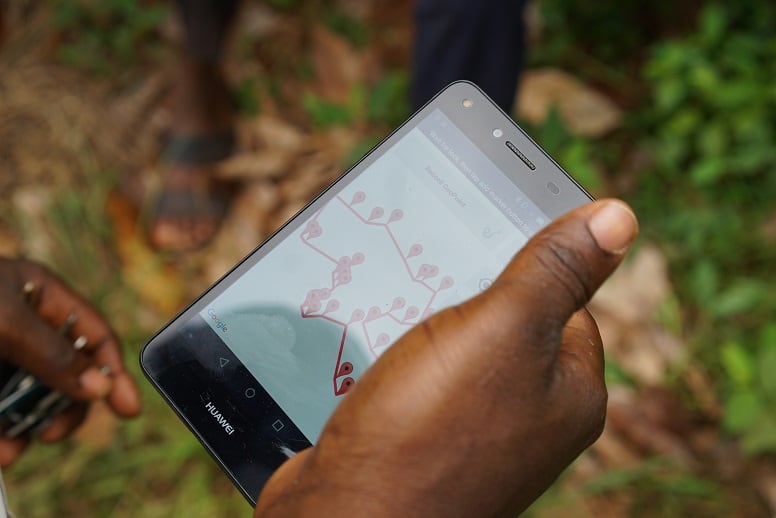While data is necessary to measure the impact of projects and can, when used properly, contribute to greater transparency, is it ‘King’ the panel were asked.
In terms of the new EU investment in West Africa, data sharing is critical, and will surely play a central role if the cash is going to significantly improve the ability of farmers' cooperatives and other bodies that represent local communities.
Robust and transparent
Robust and transparent data will be needed to train farmers on sustainability, tree replacement, reforestation and ensure their awareness of child labour regulations.
Several private sectors and government initiatives have already started making use of digital tools to provide transparency in the cocoa supply chain, but with so much data being collected by individual companies and organisations, is it not better to have some kind of joint monitoring of the supply chain for the collective good, to make sure all cocoa coming out of the region is sustainably sourced?
A real insight into what is actually happening on the ground in certain areas is still lacking, Chocoa21 was told.
In a press statement announcing the EU investment, Jutta Urpilainen, Commissioner for International Partnerships, said: “European consumers are demanding fair and environmentally sustainable products and producing countries committed to address sustainability issues in their cocoa value chains. It is time to make a real change and the EU is committed to play its part as an honest broker between economic operators, development partners, Côte d'Ivoire, Ghana and Cameroon.”
Panellist Megan Passey (Head of Knowledge and Learning at International Cocoa Initiative [ICI]) gave examples of how its engagement along the cocoa supply chain is established through the setting-up and management of Child Labour Monitoring and Remediation Systems (CLMRS), which is embedded in the supply chain of chocolate and cocoa companies, and can identify and remediate cases of child labour.
“Once the system has identified a child at risk, they are entitled to support, or should receive support, to improve the situation and prevent the situation from arising again. The child’s progress is followed up until they have stopped engaging in child labour and no longer considered at risk,” Passey said.
Suzanne Uittenbogaard (Sustainable Value Chain Manager at Cargill) said data plays a pivotal role in the company’s operations and through its new CocoaWise digital portal it has now increased knowledge and shareability into the origin of the products they source from Cargill’s direct supply chain.
But she warned the conference: “The technology should serve the people and not the other way around.”
It was a message echoed by Michael Chrisment, CEO, Farmer Connect, who said: “Data isn’t king, data is by the people for the people.”
One of the unanswered questions from the panel was who owns the data? The cocoa companies? There were strong arguments that the data should be owned by the farmers.
Friedel Hütz-Adams (Senior Researcher at SÜDWIND INSTITUT) said there’s evidence that the size of farms in Ghana has been thrown into doubt through more robust data coming through, and they could be much smaller than originally thought, making previous data for that region circumspect.
He said data is not king, but it is very important, and said a solution for reducing and ending child labour would be to create platforms for anonymous data sharing.
As the EU continues its inclusive dialogue on sustainable cocoa, with its 'Cocoa Talks’, including the participation of EU, public and private stakeholders, and selected representatives of the two main countries, accurate data is going to be crucial if the objective of the dialogue is to enhance cooperation and coordination to support sustainable cocoa production in West Africa.
How that data is managed, collected, and shared by the interested parties remains to be seen.
- The Amsterdam Sustainable Cocoa Conference 20201 runs online from 24-26 February.

